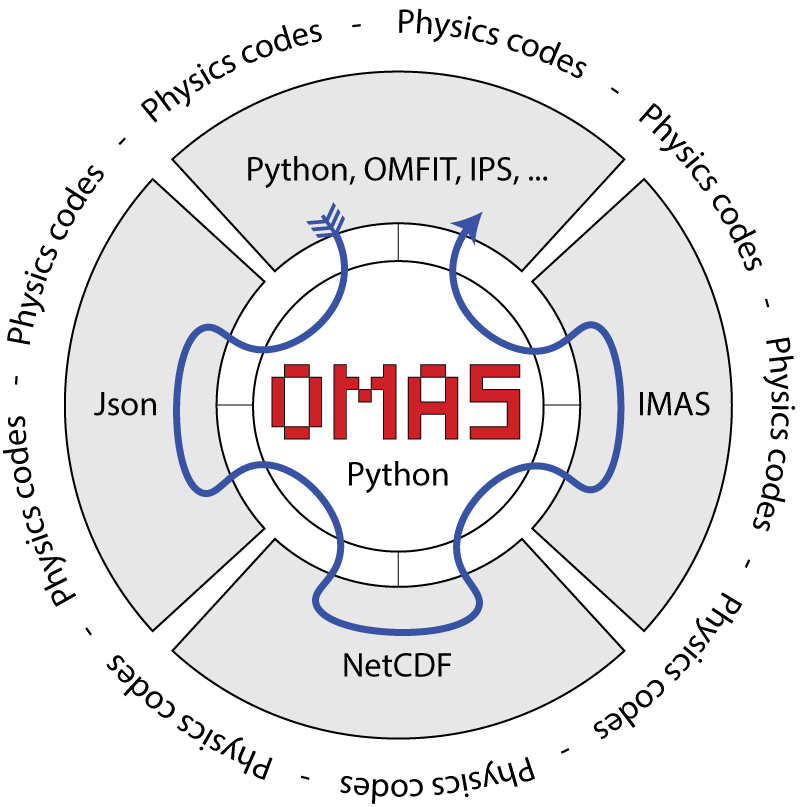Note
Go to the end to download the full example code
Save through data systems¶
This examples instantiates a sample ODS, and saves it and loads it trhough the different systems that OMAS supports. Finally, a check is done to make sure that the final ODS is the same as the initial ODS.

import os
from pprint import pprint
os.environ['OMAS_DEBUG_TOPIC'] = '*'
from omas import *
# load some sample data
ods_start = ods_sample()
# save/load Python pickle
filename = 'test.pkl'
save_omas_pkl(ods_start, filename)
ods = load_omas_pkl(filename)
# save/load ASCII json
filename = 'test.json'
save_omas_json(ods, filename)
ods = load_omas_json(filename)
# save/load NetCDF
filename = 'test.nc'
save_omas_nc(ods, filename)
ods = load_omas_nc(filename)
# save/load HDF5
filename = 'test.h5'
save_omas_h5(ods, filename)
ods = load_omas_h5(filename)
# remote save/load S3
filename = 'test.s3'
save_omas_s3(ods, filename)
ods = load_omas_s3(filename)
# save/load IMAS
omas_rcparams['allow_fake_imas_fallback'] = True
paths = save_omas_imas(ods, machine='ITER', pulse=1, new=True)
ods_end = load_omas_imas(machine='ITER', pulse=1, paths=paths)
# check data
difference = different_ods(ods_start, ods_end)
if not difference:
print('OMAS data got saved and loaded correctly throughout')
else:
pprint(difference)